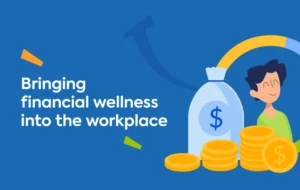
A promise of financial support in the event of unexpected adversity is what insurance offers as a safety net, how to get fair compensation on your insurance claim. But when you have to file a claim, it can be confusing to figure out how to proceed and get compensation.
Recognizing the importance
Fair pay is more than just financial compensation; it’s a pledge to recognize how unexpected events affect people as individuals, as families, and as companies. Fair compensation is the essential link that connects the aftermath of a natural catastrophe, vehicle accident, or property-related incident to the healing process.
Getting Ahead on the Emotional Map
The promise of just restitution provides a ray of hope during hard times. It offers a practical means of reconstructing lives and livelihoods while recognizing the emotional impact that loss and upheaval impose. It becomes clear as we delve into the nuances of the insurance claims procedure that receiving appropriate recompense involves more than just paying debts—it also entails reestablishing stability and routine.
Obstacles to Receiving Just Compensation
Recognizing that getting just compensation is not always easy, this investigation will highlight the difficulties people could run into while filing a claim. Advocating for a just conclusion requires an understanding of these obstacles, which include everything from complicated paperwork to insurance company negotiations.
Encouraging the Claimants
As we move forward, it becomes increasingly important to educate people on their rights and the nuances of the claims procedure. This information gives claimants the tools they need to successfully negotiate the frequently challenging landscape of insurance claims, empowering them and guaranteeing they get paid fairly.
A dedication to restitution and justice
The importance of equitable remuneration in the insurance claims procedure is highlighted by this investigation. It highlights the necessity of an integrated approach that addresses the practical and emotional aspects of rehabilitation in addition to addressing monetary losses. Through exploring the subtleties of appropriate compensation, we set out on a quest to promote justice, healing, and a revitalized sense of safety to those navigating the difficult fallout from unanticipated occurrences.
Claims from Property Insurance
reveal the nuances of property insurance claims, which deal with losses to buildings, enterprises, or personal possessions.
describing the typical reasons for property claims, such as accidents and natural disasters, as well as how insurance companies evaluate and pay out damages.
Claims for Auto Insurance
examining the realm of auto insurance claims, including theft, accidents, and vehicle damage also addressing the role that many elements play in getting cars back to the way they were before a collision, such as blame assessment, coverage limitations, and the claims procedure.
Claims for Health Insurance
navigating the intricacies of filing claims for medical services, hospital stays, and prescription drugs under health insurance.
Examining the paperwork and processes needed to submit health insurance claims to guarantee that policyholders can receive essential medical care.

Claims for Life Insurance
examining the particulars of life insurance claims, especially when it comes to beneficiaries claiming benefits after the insured has passed away.
talking about the vital records—such as death certificates and policy details—that are required for a seamless and efficient claims procedure.
Claims for Disability Insurance
Knowing how to file a claim for disability insurance, which offers financial support if a handicap keeps a person from working. Examining the requirements for approving disability applications and the supporting documentation needed to support the claim.
Claims from liability insurance
shedding light on liability insurance claims, especially those that involve lawsuits or losses to third parties examining the processes used to look into, settle, and provide the supporting documents for a claim or defense to liability claims.
Claims for Travel Insurance
examining the topic of travel insurance claims, including misplaced luggage, medical situations overseas, and itinerary cancellations.
highlighting the need to record travel-related incidents and the procedure for making claims to get compensation.
Getting Around the Claims Process: Strategies and Proof
offers a thorough tutorial on the necessary paperwork needed to submit insurance claims in a variety of categories.
providing policyholders with information on best practices, such as timely reporting, unambiguous paperwork, and efficient interaction with insurance companies.
Evaluate the circumstances
Do a comprehensive assessment of the problem before beginning the claims process. Assess the incident’s scope, whether it’s a car collision, property damage, or a medical concern. A more seamless commencement procedure is ensured by having a clear understanding of the nature of the claim.

Inform Your Insurance Company
Notifying your insurance company as soon as possible is essential. A successful claim depends on adhering to the deadline that most policies specify for reporting events. Use the methods provided by your insurance company to get in touch with them—a hotline, an internet portal, or your insurance agent.
Compile Records
The foundation of each successfully filed insurance claim is documentation. Gather all pertinent data, such as the incident’s specifics, its dates, and the identities of any persons involved. Get a police report for any auto accidents, and if you can, speak with witnesses. Take detailed pictures of any damages in property claims. Complete documentation makes the claims process go more quickly and improves your case.
Fill out the claim forms.
Claim forms are usually required to be filled out by insurance companies. These documents record pertinent information on the event, your coverage, and the amount of damages. To prevent processing delays or issues, fill out these forms with strict attention to accuracy.
Collaborate with the Adjuster for Claims
After your claim is filed, the damages could be evaluated by a claims adjuster. Participate completely in this process by supplying any extra information or supporting material that may be needed. In evaluating the veracity and scope of your claim, the adjuster is essential.
Acquire Medical or Repair Estimates
Getting repair quotes is essential for claims regarding property or auto insurance. Collect medical reports and bills for claims about health. These approximations and records function as proof of the actual losses, which facilitates the determination of the claim payout.
Examine the settlement offer.
After the insurance company has finished its evaluation, it will make a settlement offer. Examine this offer cautiously to make sure it matches your recorded losses. To resolve any differences, quickly bring them to the attention of your claims adjuster.
Resolution and Acceptance
Once you’re happy with the settlement offer, accept it in writing. This indicates that the claim has been resolved, and the insurance provider will now proceed with paying the agreed-upon sum.
The importance of Timely Action and paperwork
The timely initiation of the claims procedure and the meticulous maintenance of paperwork have a substantial impact on the claim’s result. While extensive documentation acts as a comprehensive record of the incident, avoiding disputes and speeding up the claims process, timely action guarantees compliance with policy requirements.
Following these guidelines and understanding the value of timely action and thorough documentation will help you navigate the complex world of insurance claims and convert a potentially difficult process into a lucrative and effective settlement.
Common Challenges in the Claims Process
The claims process, designed to provide financial relief in times of need, often becomes a journey fraught with challenges for claimants. This write-up delves into the common obstacles encountered, shedding light on the intricacies of the claims process and offering insights into overcoming these hurdles.

Recognizing the Landscape
Although claimants may find themselves facing a plethora of obstacles, they often begin the claims process by looking for support and resolution. The purpose of this article is to clarify these difficulties to promote a better comprehension of the intricacies that may obstruct a seamless claims process.
Denial of claims: The first setback
Receiving the unpleasant news of a claim denial is one of the major obstacles claimants encounter. Insurance companies may reject claims for a variety of reasons, which can cause aggravation and financial strain for individuals who are in actual need of support.
Processing Delays: The Waiting Game
In the aftermath of an incident that calls for a claim, time is of the essence. Claimants may experience increased stress and financial hardship as a result of delays in claim processing. To play the waiting game well, one must comprehend the reasons behind these delays.
Insurance Company Disputes: Handling Competing Interest
Claimants and insurance companies frequently argue about coverage, values, or how to interpret policy provisions, which can lead to disputes. Understanding the nuances of insurance plans and taking a nuanced approach are necessary for navigating these issues.
Processing Delays: The Waiting Game
Establishing a Firm Basis
The significance of proactive record-keeping in reducing the likelihood of claim denials cannot be emphasized. This section offers suggestions for the kinds of supporting documentation that might bolster a claim and proactively address frequent grounds for denials.
Communication Techniques: Handling Delays
Communication failures can lead to claims procedure delays. To reduce delays and promote a more seamless process, this article examines efficient communication tactics that claimants can use to keep lines of communication open and transparent with insurance firms.
Techniques for Mediation and Resolution: Using Amicable Dispute Resolution
Conflicts can be expensive and emotionally taxing. To assist claimants in resolving disputes with insurance companies and achieving cooperative outcomes, this section provides information on mediation and resolution strategies.
Recognizing the Importance of Equitable Recompense
lays the groundwork by highlighting how important just remuneration is to value a person. Introducing the main idea of the article: methods for improving compensation results.

Recognize Your Value: The Cornerstone of Winning Deals
highlights how crucial it is to be self-aware and recognize one’s worth in the workplace.
talking about how to evaluate industry norms, market trends, and individual contributions to figure out what a fair wage expectation is.
Study and Get Ready: Creating a Strong Argument
describing in detail the vital value that careful research plays in becoming ready for pay talks.
investigating methods and resources for obtaining information on industry averages, pay scales, and employer financial stability.
Communicating Effectively: Clearly State Your Value Proposition
highlighting how important it is to communicate compellingly and straightforwardly when having salary conversations.
Advising on how to showcase talents, successes, and the special value you provide to the company.
Having Confident Conversational Navigation
talks about different negotiating strategies, such as collaborative approaches, framing, and anchoring.
offering advice on how to handle typical obstacles and protests raised during pay talks.
The Strength of Convincing Evidence: Developing Your Argument
highlighting the importance of concrete proof, such as accomplishments, performance indicators, and industry comparisons. this demonstrates how the case for just compensation is bolstered and negotiating positions are strengthened by supporting evidence.
Non-Credit Benefits: Increasing the Salary Range
Recognizing the importance of non-cash perks like programs for health, time flexibility, and chances to grow professionally.
inspiring people to think about compensation in a more comprehensive way than just monetary terms.
Time Is Everything: Taking Advantage of Negotiation Opportunities
talks about how crucial it is to schedule compensation talks strategically.
investigating potential bargaining opportunities in situations like performance reviews, employment promotions, or changes in the industry.
Overcoming Difficulties
Getting Past Barriers to Just Recompense
addresses typical problems that people can run into during the negotiating process.
offering helpful advice and strategies for getting past obstacles and achieving the desired result.
Actual Success Stories
Gaining Knowledge from Firsthand Accounts – Presenting actual success stories of people who successfully negotiated just remuneration.
drawing important guidelines and lessons to motivate and inspire readers from these examples.
Encouraging People for Remuneration Success – Highlighting the most important lessons from the tactics covered in this article.
reiterating the uplifting message that evidence-based bargaining, smart planning, and excellent communication can lead to equitable compensation.
Evidence-Based Negotiation
Foundations of Negotiation is the lesson.
Understanding: Creating a strong argument backed by facts and accomplishments improves one’s negotiating position.
Empowerment: Armed with proof, people negotiate with assurance and a distinct value proposal.
shrewd planning
Compensation Using a Strategic Approach. Careful planning entails figuring out professional milestones, sensible goal-setting, and market benchmarking.
Empowerment: A well-designed strategy sets people up for success by coordinating expectations for compensation with both personal and professional goals.
Expressing One’s Worth and Value
To communicate effectively, one must be clear, assertive, and able to articulate their contributions and effects value creates a shared understanding that opens the door to open and fruitful conversations on remuneration.
Fair Compensation
Emphasis: People can overcome historical obstacles and obtain recompense that is commensurate with their actual worth by carefully applying the evidence.
Strategic Planning Encourages Success
Emphasis: Aspirations and compensation should be in line with smart planning, which serves as a compass to help people reach their financial objectives.
The Role of Communication in Fostering Understanding
The key to fostering understanding between people and organizations and facilitating fair and honest compensation talks is excellent communication.
The Path to Acknowledgment
Emphasis: Success in compensation is a process rather than a destination. Every experience gained and every negotiation handled advances the cause of fair recompense for all.
The most important takeaways from the conference on compensation success center on the importance of planning, having solid data and communicating clearly. The encouraging message is clear: being empowered to negotiate pay is a real option, not just a pipe dream. By employing diligence, strategic planning, and candid communication, people may create a future in which their contributions are appropriately recognized and fairly compensated.
Dissecting Claims from Auto Insurance
being aware of the intricacies involved in filing auto insurance claims, from theft to accidents.
investigating the function of medical records and police reports in motor insurance claims.
Health Insurance Claims: Getting the Right Compensation
The foundation of the financial interaction between patients and healthcare providers is health insurance claims. This article explains the complexities of filing a health insurance claim and stresses how important it is to get the right reimbursement to maintain financial stability while navigating the complicated world of medical bills.
Comprehending the Process of Filing Health Insurance Claims
The process of filing a health insurance claim begins with a medical procedure or service. Every interaction, whether it’s a standard check-up, surgery, or specialty care, creates a trail of data that serves as the foundation for a claim on medical coverage. s
The Value of Precise Medical Billing
A successful health insurance claim is largely dependent on accurate accounting of medical services. It looks at the significance of medical codes, the correctness of paperwork, and how they affect the reimbursement procedure. Every component—from codes for procedures to diagnosis codes—is essential to ensuring that the insurance company processes the claim correctly and on time.
Appropriate Interaction with Healthcare Professionals
A key component of the health insurance claims procedure is efficient communication between policyholders and medical providers. This section of the article discusses the necessity of having open lines of communication to prevent billing errors. It talks about how people can make more informed decisions regarding their healthcare costs by being aware of the coverage details, co-payments, and deductible levels.
Important Elements of Claims for Health Insurance
Nevertheless, by dissecting a health insurance claim, this part clarifies the crucial components that support a smooth reimbursement procedure. Knowing how a claim is processed from checking policy details to sending required paperwork guarantees that people may take an active role in getting the money they’re due.
Typical Obstacles and Difficulties
Handling health insurance claims is not an easy task. This section of the article examines typical problems that people could run across, including incomplete paperwork, slow processing, and rejection of claims. By drawing attention to these difficulties, the article hopes to enable readers to foresee future problems and take proactive steps to resolve them.
Suggestions for Simplifying the Claims Procedure
This section offers helpful hints and techniques that policyholders can use to expedite the processing of health insurance claims. These suggestions are intended to increase people’s self-assurance and effectiveness in handling their health insurance claims, from maintaining accurate records to comprehending policy terminology.
In addition, Gaining a thorough understanding of the claims procedure is the first step toward obtaining just compensation. People have to follow a set process from the time an incident happens until the claim is resolved. The main phases are explained in this section, with a focus on the significance of timely and correct documentation. A successful claim is built on clear and comprehensive records, which guarantee that all pertinent data is available for review.
However, Prompt reporting of the incident to the insurance provider is a cornerstone of a successful claim. Delayed reporting can lead to complications, potentially impacting the assessment and processing of the claim. This highlights the significance of immediate and transparent communication with insurance providers, setting the stage for a smoother claims journey.
Calculating Your Losses
Proper compensation requires a precise assessment of the losses sustained. Regardless of the type of loss—personal injury, business interruption, or property damage—this section explains how to fully evaluate and record your losses. Claimants can improve their prospects of obtaining just compensation that fairly compensates for the actual amount of their losses by providing a comprehensive and meticulously recorded description of the damages.
Strategies for Negotiation
Dealing with insurance adjusters can be a complex procedure. This section offers insightful information about successful negotiating techniques. Claimants acquire the skills necessary to stand up for their rights and negotiate a settlement that fairly compensates them for their whole loss, from comprehending the coverage of their policies to making a strong case.
Legal Aspects: Knowing When to Get Expert Counsel
Getting legal counsel is crucial when dealing with complicated claims or conflicts. The article lists important situations in which it might be wise to consult legal counsel. Legal professionals can offer crucial advice to guarantee that claimants obtain fair and just compensation, regardless of the reason for the denial of their claim, the ambiguity of the policy language, or the disagreement over liability.
Ensuring Fair Treatment
Fair compensation includes treating the claimant fairly at every stage of the process, not only when the money is involved. Common issues including delayed or refused claims and inadequate payouts are covered in this section. Claimants can avoid potential roadblocks and make sure their claim is handled equitably by being informed of their rights and taking proactive measures to resolve concerns.
The article’s conclusion emphasizes the significance of approaching insurance claims with knowledge and initiative. It highlights that just compensation is a purposeful result of carefully navigating the complexities of the claims procedure rather than just a result.






4 thoughts on “How to Get Fair Compensation on Your Insurance Claim”